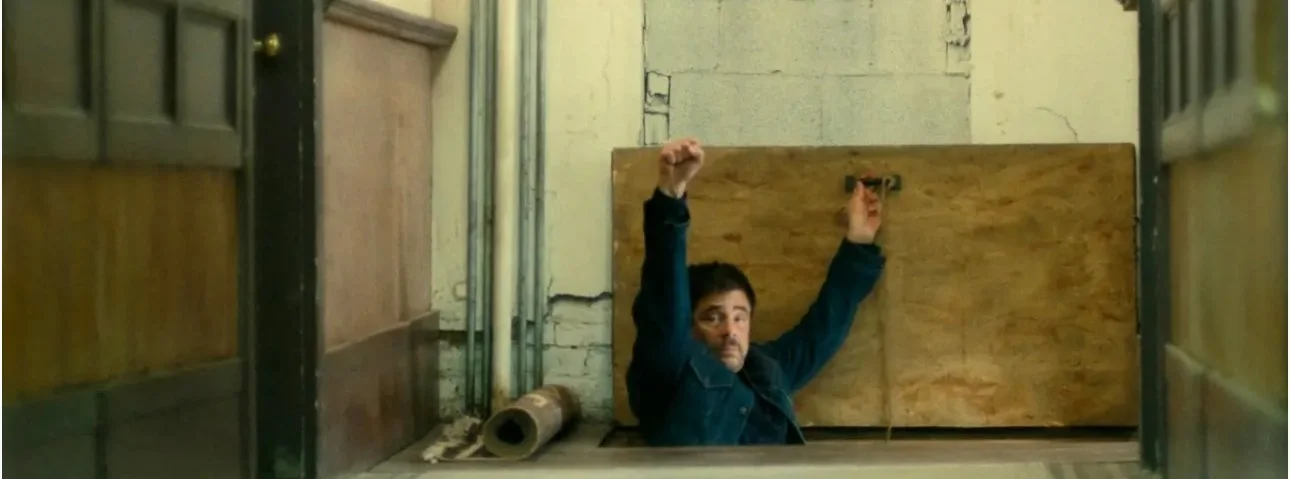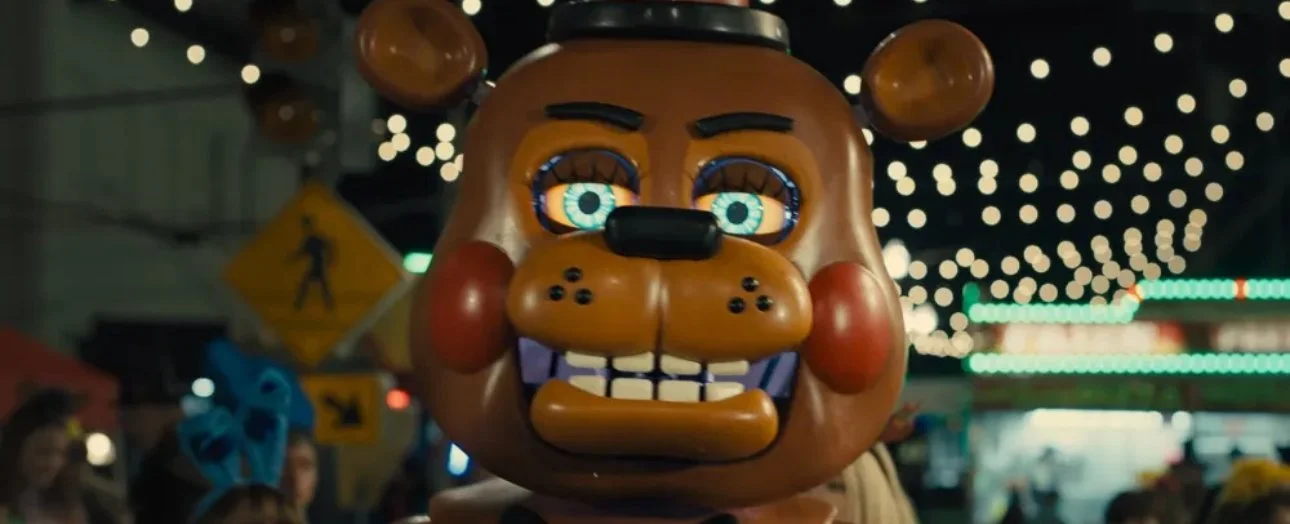Director Kelly Reichardt, bless her maverick heart, is one of the great American filmmakers of the last ten years, what with a track record that speaks for itself ("Wendy and Lucy," "Meek's Cutoff," "Certain Woman") and a contemplative, minimalist and distinctive style that is meant to isolate mainstream audiences.
Read moreQuentin Tarantino Says New Leonardo DiCaprio Movie Will Be Another ‘Pulp Fiction’

At Cinecon, Quentin Tarantino and Leonardo DiCaprio decided to just walk on stage to talk about their upcoming film, “Once Upon a Time in Hollywood.”
Tarantino, in his usual outlandish self, told the crowd that ‘Once Upon’ is “probably the closest to ‘Pulp Fiction’ that I have done,” according to THR. If that's not enough to excite you I don't know what will.
Tarantino went to say that “Sony and myself will be coming to the theaters with the most exciting star dynamic since Paul Newman and Robert Redford. It’s very hush-hush and top secret. But I can tell you that ‘Once Upon a Time in Hollywood’ takes place in 1969, at the height of the counterculture hippie revolution and the height of new Hollywood. Street by street, block by block, we’ll transform Los Angeles into the Hollywood of 1969.”
Of course, he's referring to Brad Pitt and DiCaprio. The latter went on to chime in and say “It’s hard to speak about a film that we haven’t done yet, but I’m incredibly excited…to work with Brad Pitt, and I think he’s going to transport us. I’m a huge fan of ‘Singin’ in the Rain’ — movies about Hollywood. As an L.A. native, having read the script, it’s one of the most amazing screenplays. We are going to do our best job to make it fantastic.”
Sony Pictures motion picture group chairman Tom Rothman, also on stage, added that “It's the best screenplay that I have had the privilege to read.”
Of course, the hype machine is very well what this is. However, ever since "Pulp Fiction" Tarantino has cautiously made sure to not replicate the stylistic and narrative aspects of what most consider to be his masterpiece. The fact that QT has decided to embrace and revisit that film and go back to it will make any cinephile excited and gleeful at the prospect.
The films that QT released post-Pulp Fiction all made sure to sidestep whatever was used in that 1994 film: "Jackie Brown" was based on an Elmore Leonard novel and was inspired by blaxploitation films, "Kill Bill" was inspired by Japanese grindhouse cinema, "Inglorious Basterds," was a revisionistic war movie, "Django Unchained" was inspired by Sergio Leone's spaghetti westerns and "The Hateful Eight" felt like a violent version of an Agatha Christie novel.
There’s no release date yet for “Once Upon a Time in Hollywood.”
"Django" unchains every convention

Django Unchained (R)
Quentin Tarantino's Django Unchained is a peculiar beast. A film so outrageous yet -at the same time- so dead serious in its themes that you feel confused and exhilarated at the same time. The -by now- well known "Tarant-onian" dialogue is very much present here, just as present as in his last picture the equally outrageous Inglourious Basterds, which was what I described back in 2009, a "Jewish wet dream". Django is an "African American wet dream", loaded with fantasy based scenes that can only be described as full on revenge, especially the finale which rivals the masterful "Jew face" finale of Basterds. Tarantino sets up his "historical" film in very much the same way eh set up his last. This isn't a piece of history, nor should it be. Even with the recent odd airing of Basterds on the History Channel, Tarantino doesn't mean to give us a history lesson, he actually means to reinvent history as a way to feed his own unique twisted little fetishes.
This isn't the Tarantino of Reservoir Dogs, Pulp Fiction or Jackie Brown. Those films had a sort of cinematic subtleness and the violence depicted in them was scarily real. Instead, Django is the violent Tarantino of his latter day films, I'm talking the Cartoonish sword debauchery of Kill Bill, the feminist manifesto mayhem of Death Proof and the Scalping epicness of Basterds. This in a way is a real letdown for this very viewer. I am in no way saying that Django or another Tarantino film of the last 10 years is bad, in fact they're all magnificent in their own twisted little ways, but I for one miss the realism that he brought to his first 3 features. Then again, if he resorted to his old indie formula, people would most likely criticize him for just being unoriginal and repetitive, which of course just makes it a lose-lose situation for the former video store clerk turned director.
Back to Django - it's one hell of an experience. Packed with enough Tarantino to please most of his fans. As with any of the director's films, it's loaded with great performances, QT has always had a gift for bringing out the best in an actor. Just watch Travolta in Pulp Fiction or Kurt Russell in Death Proof. Christophe Waltz is magnificent in Django. In Waltz Tarantino has found his muse, an actor that can spurt out his brilliant dialogue with such poetic admirable elegance. It is then no surprise that Waltz has gotten his second straight Oscar Nomination for a Tarantino picture, don't be surprised if a third one comes up again at some point in time. Jamie Foxx as our titular hero doesn't need to act much but brings out enough emotions in a simple stone faced gesture that you don't care. The always reliable Leonardo Dicaprio shines also, as Monsieur Candie - a slave owner obsessed with the racist sport of Mandingo. Once again Dicaprio was snubbed on the Oscar ballot, this has happened way too many times, when will Oscar finally fess up to its past mistakes and reward this brilliant actor with a nomination?
Want to talk brilliance? Wait until you see Samuel L Jackson as Stephen, a black slave turned white servant to Dicaprio's Candie. Tarantino meant to make Stephen the "most despised negro in cinematic history", job well done QT. Jackson is astonishing, bringing out a ferocious, hellaciously comic performance. Fuck Oscar, Jackson's role here is one for the history books and is a kind of deranged version of Uncle Ben. Every time he's on screen you will be hooked. Tarantino doesn't play it easy and his film does have its flaws but the ambition is contagious. He films every scene with the kind of passion you rarely see in movies today. To say that Tarantino is drunk on cinema would be an understatement. It is his religion. At 167 minutes long, Tarantino stuffs his film with the most peculiar, original characters imaginable. A cast of actors that bring their A game to the forefront because they understand the vision their director is going for. Django Unchained is a film untouched by conventionalism, it is a diamond in the ruff, a pebble in a sea of muck and it gets the job done just like you expect it to. Now, how about that?





